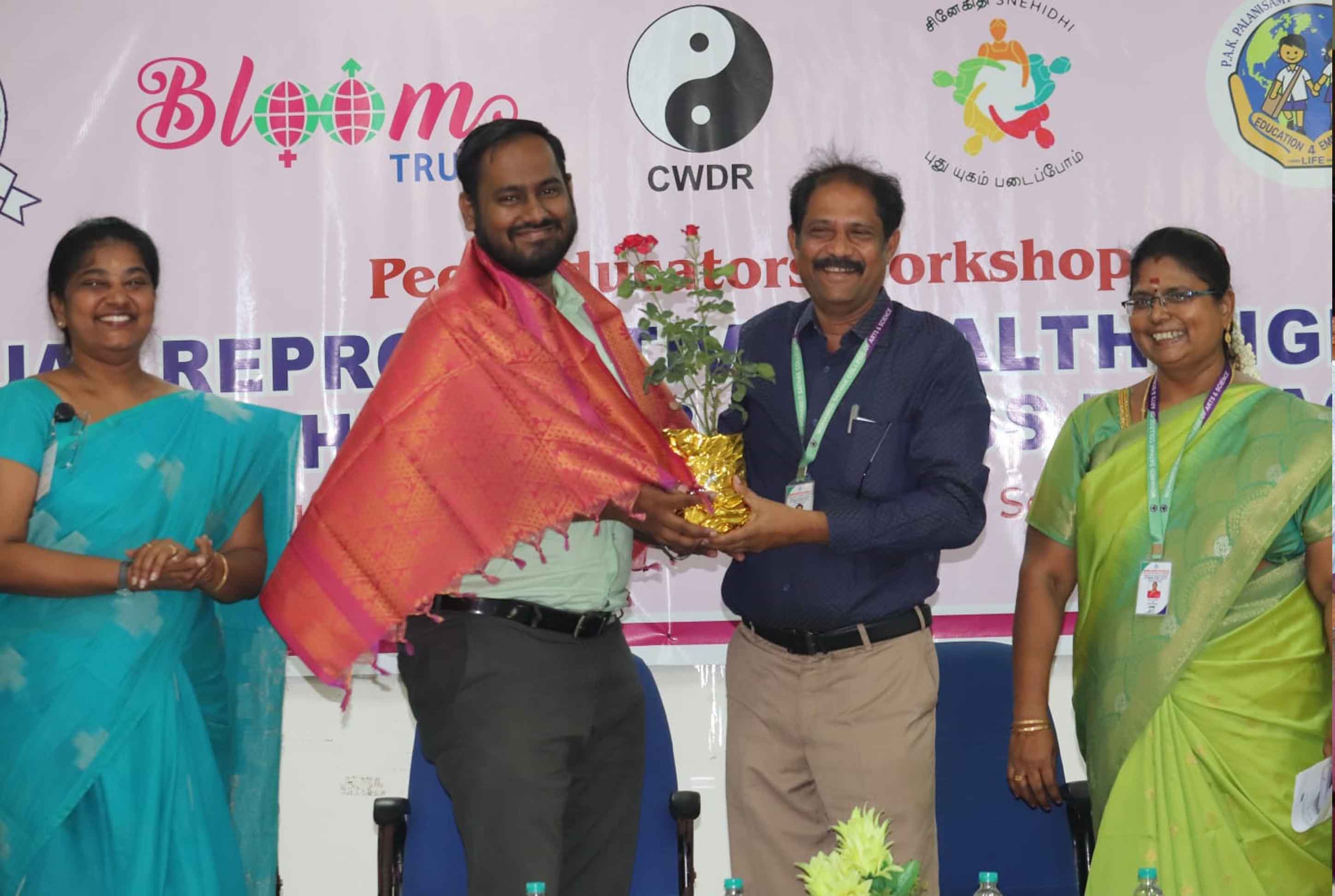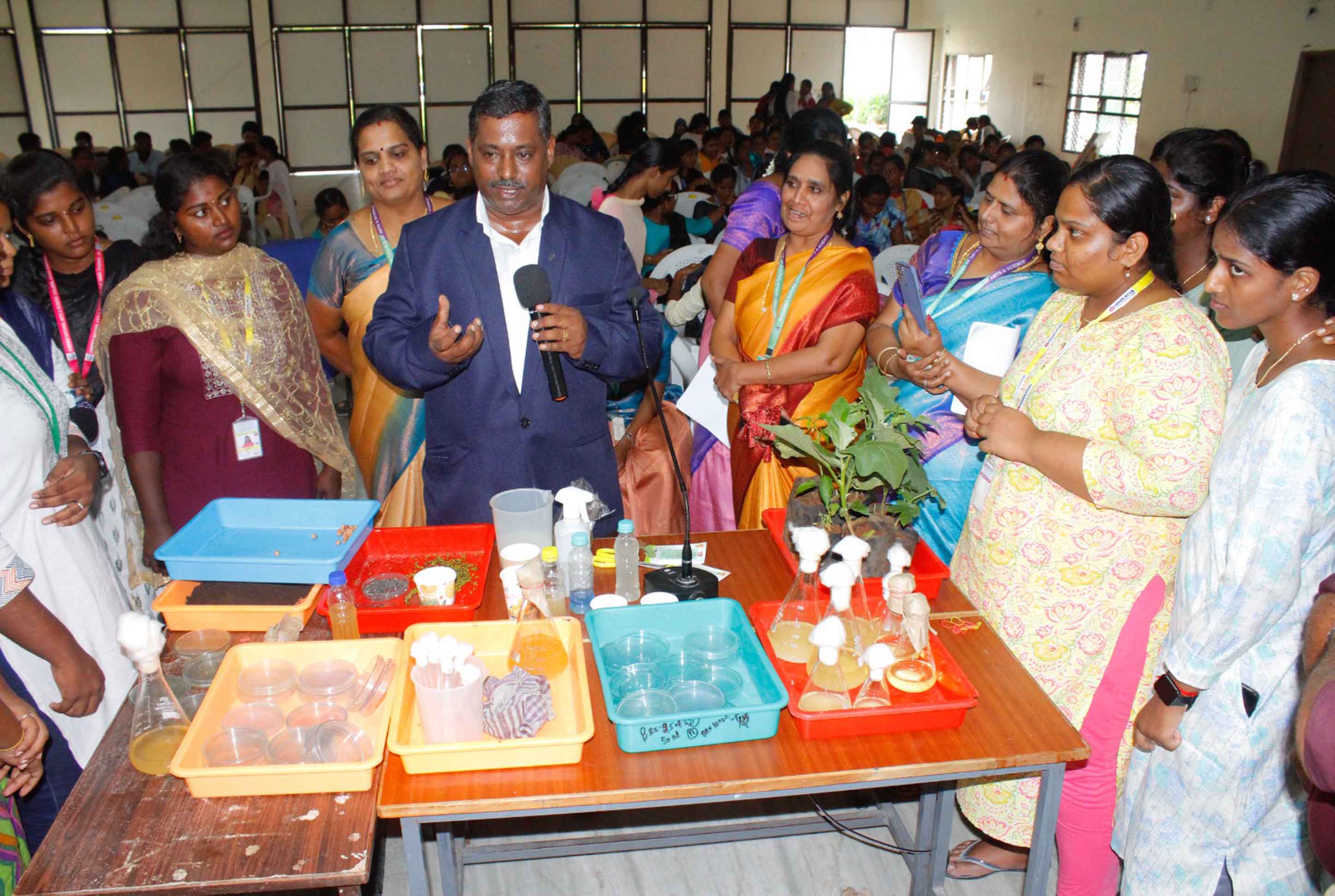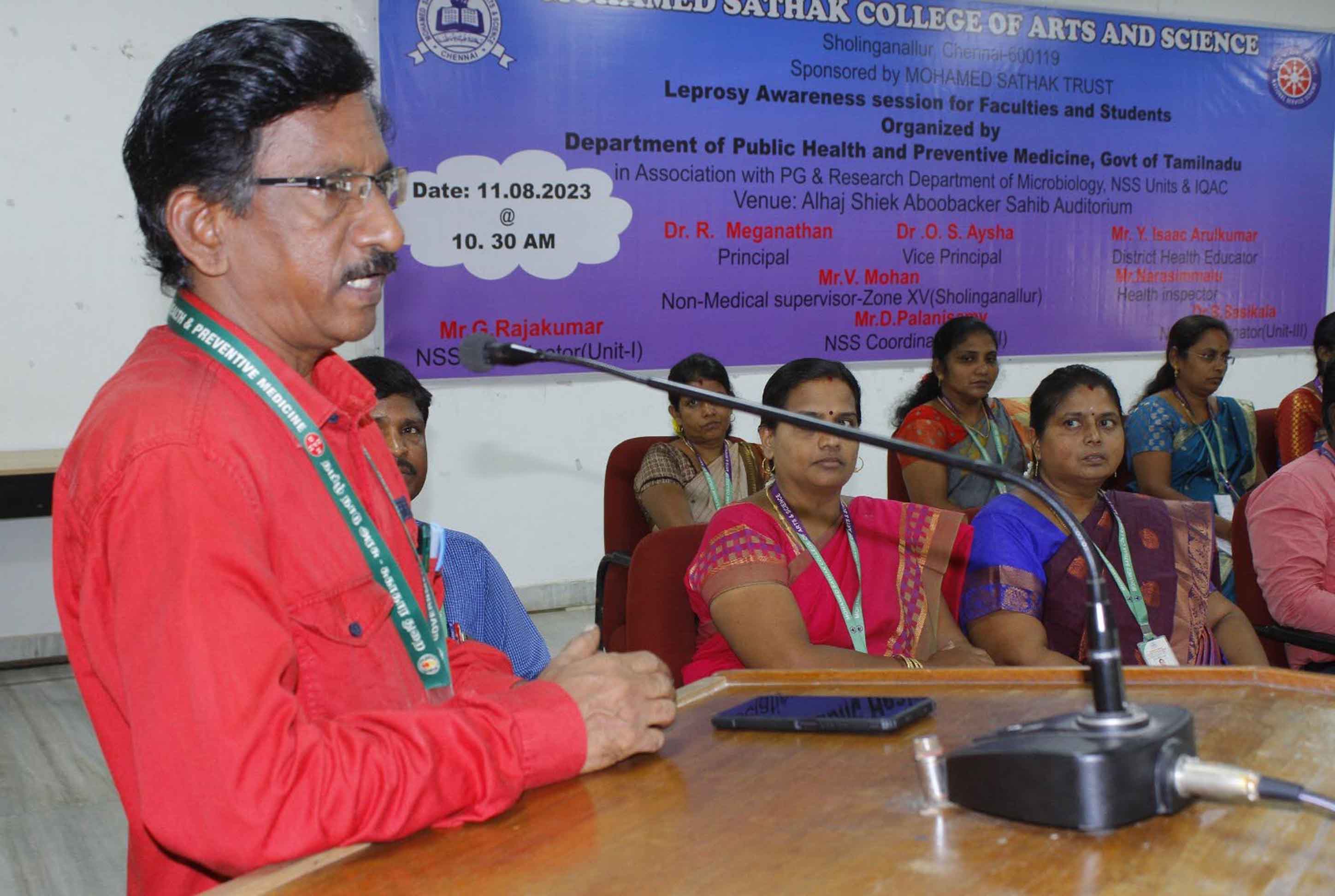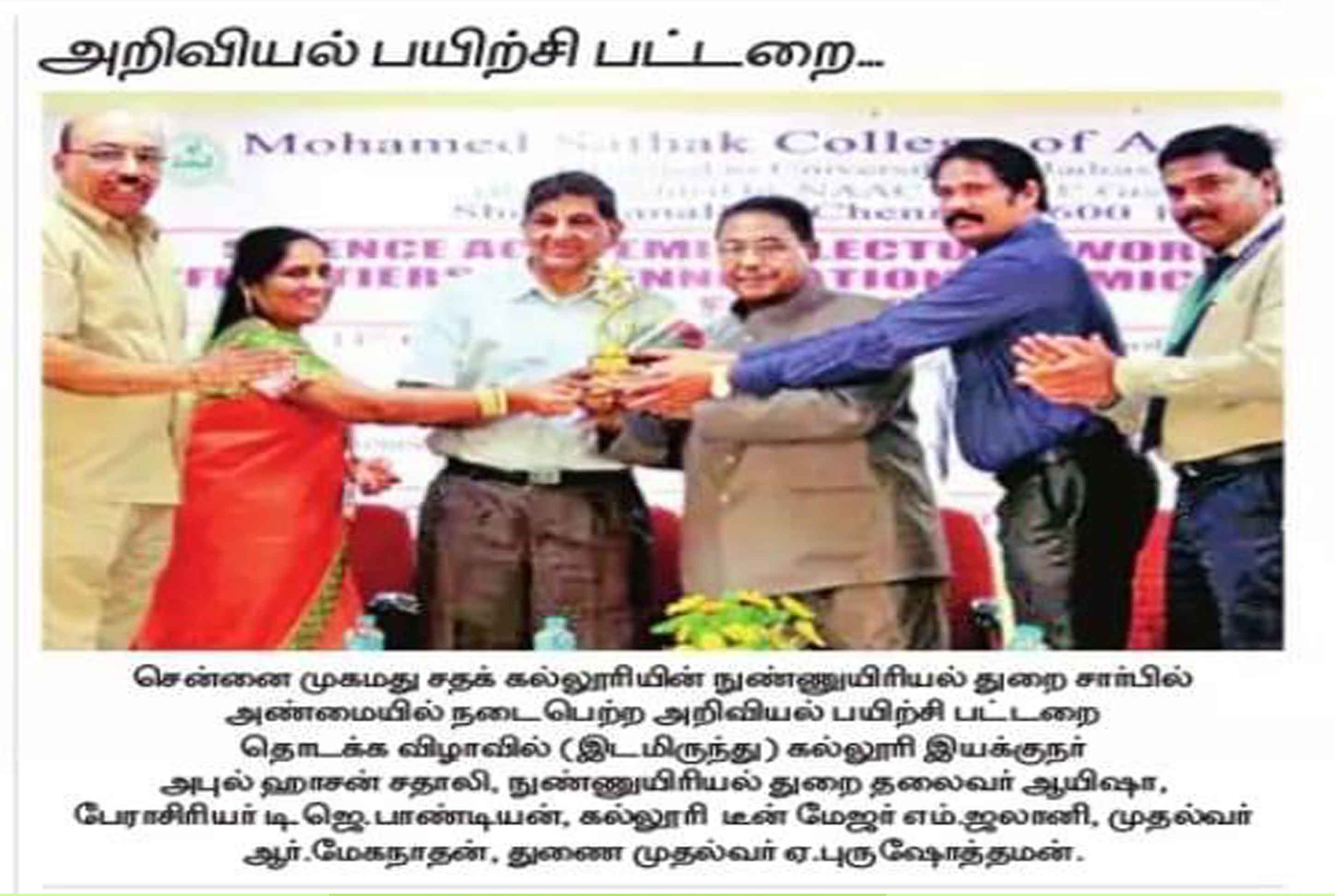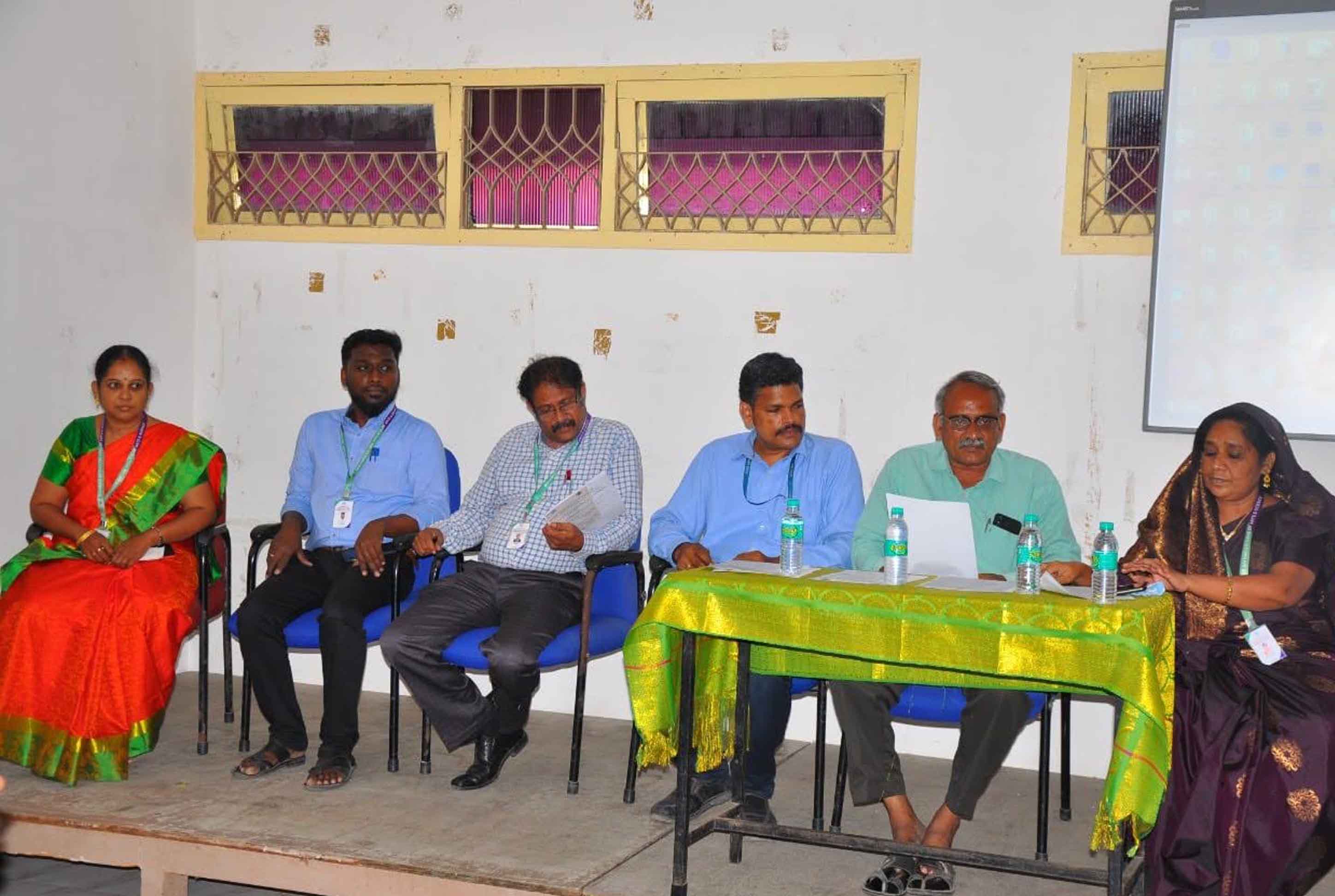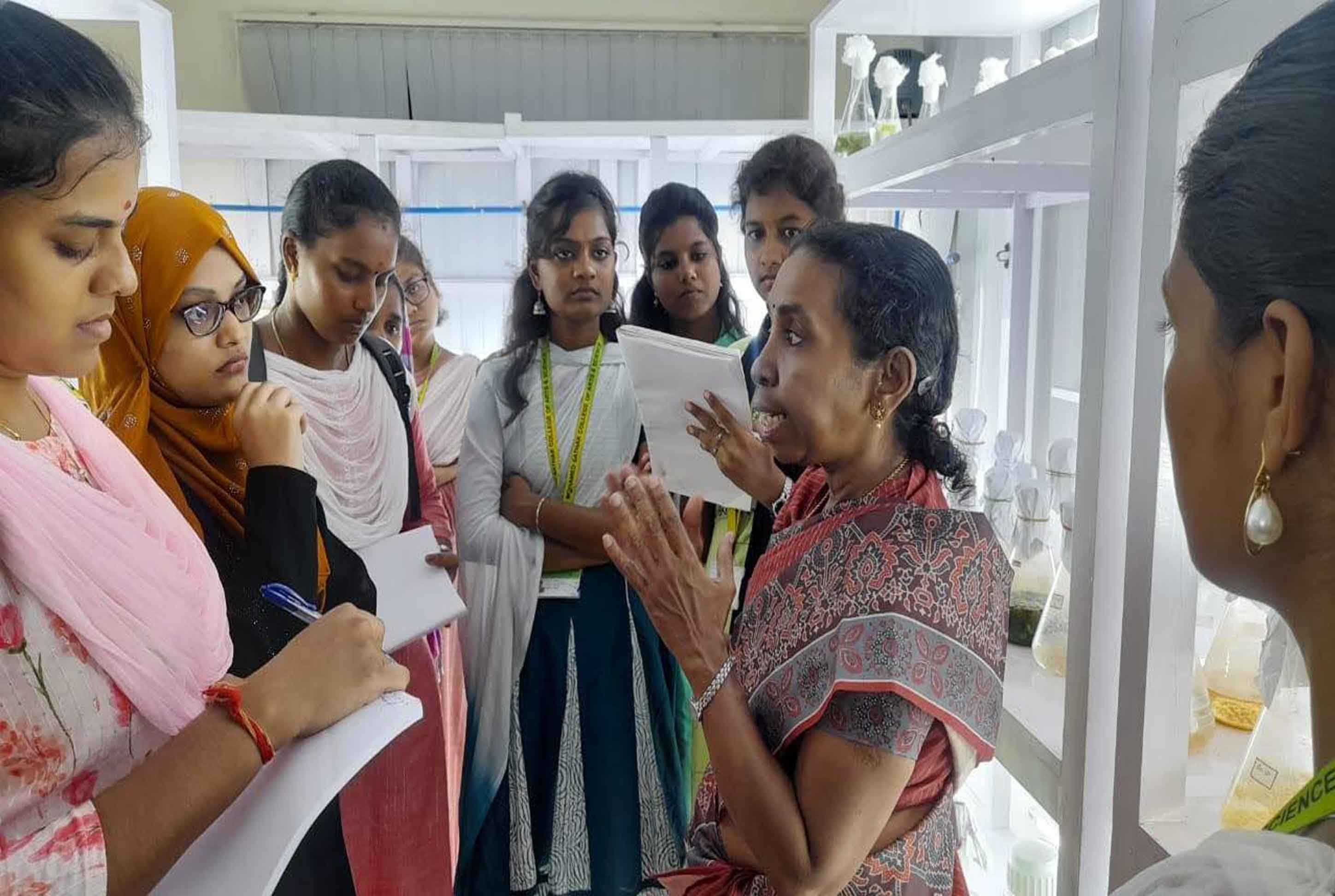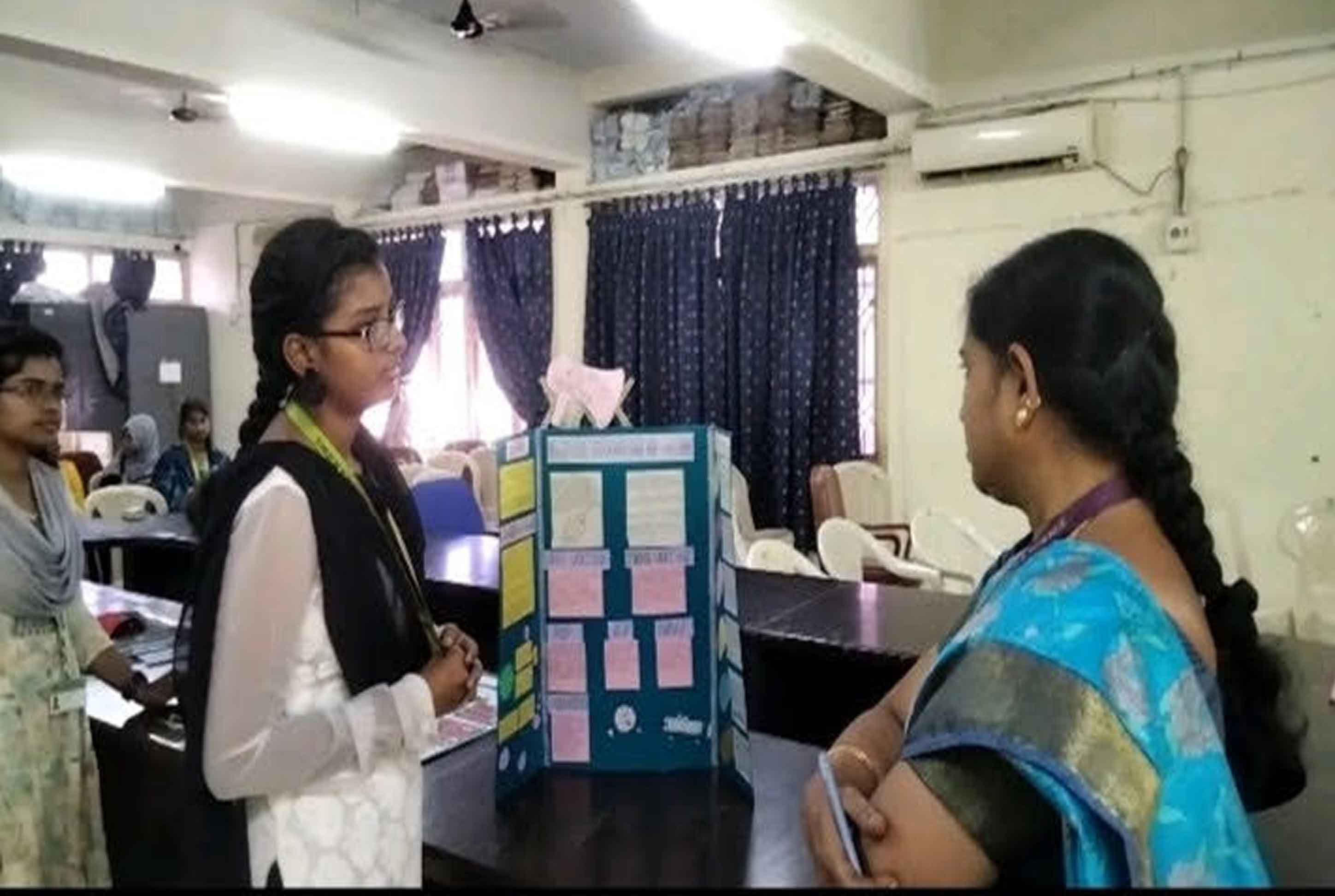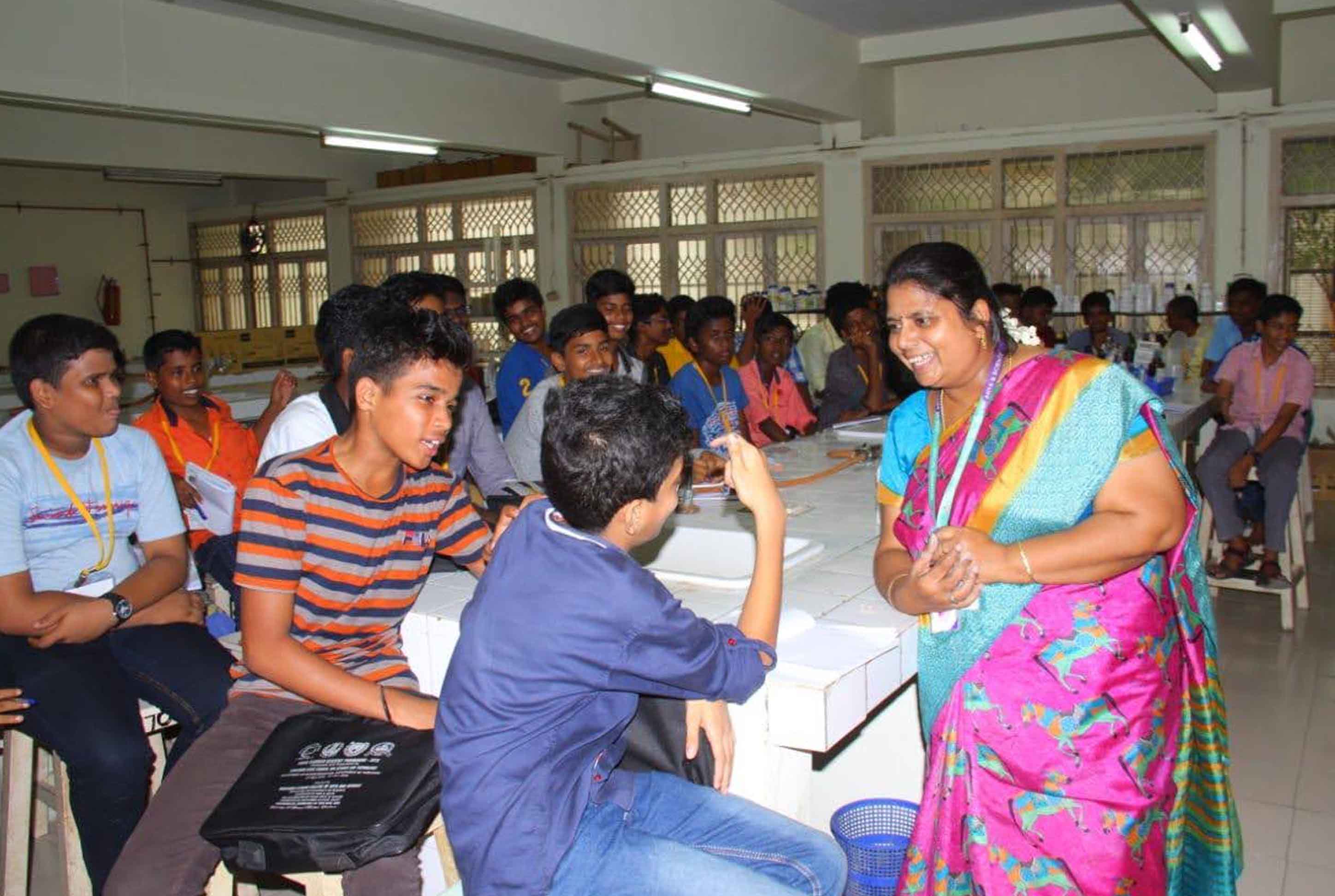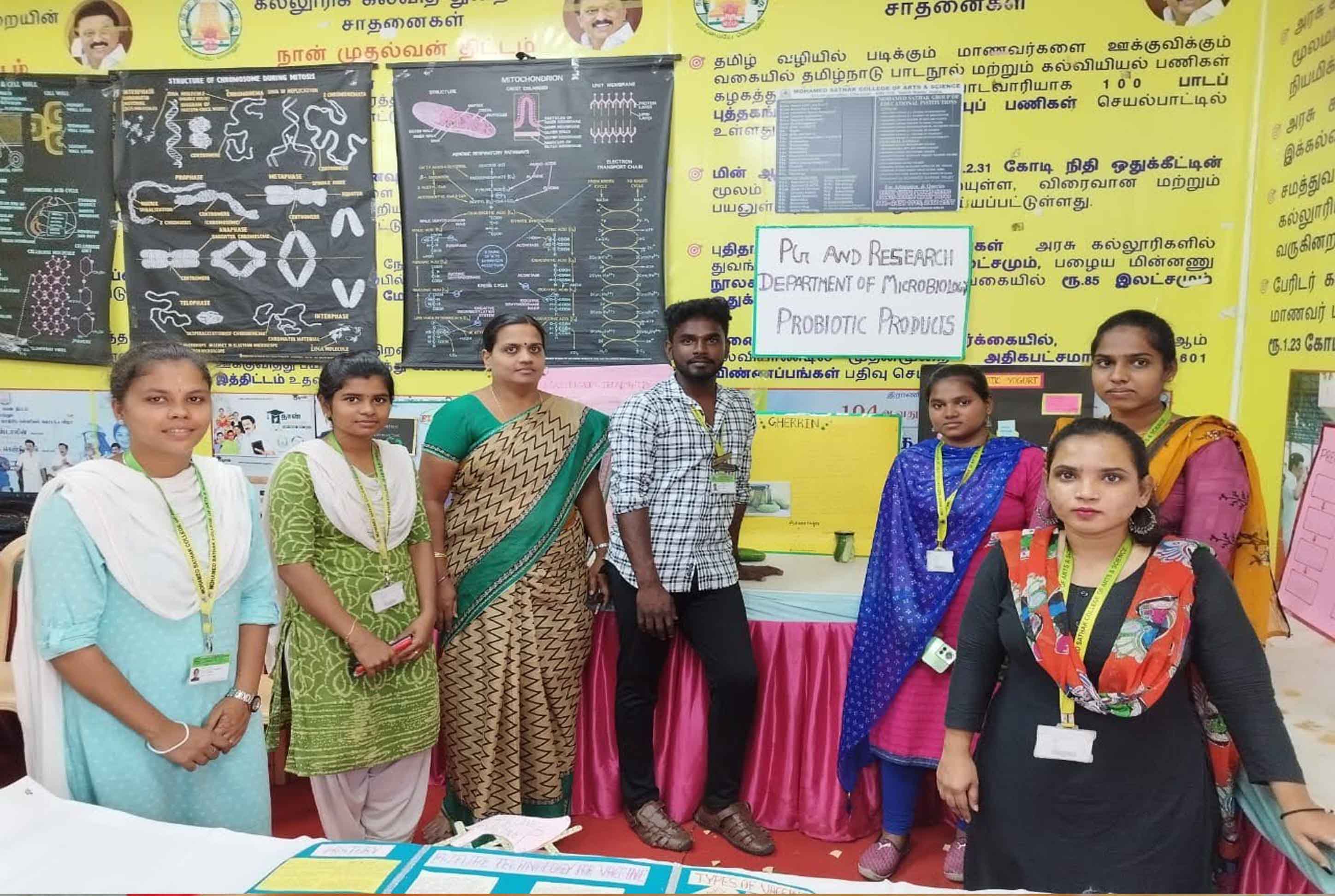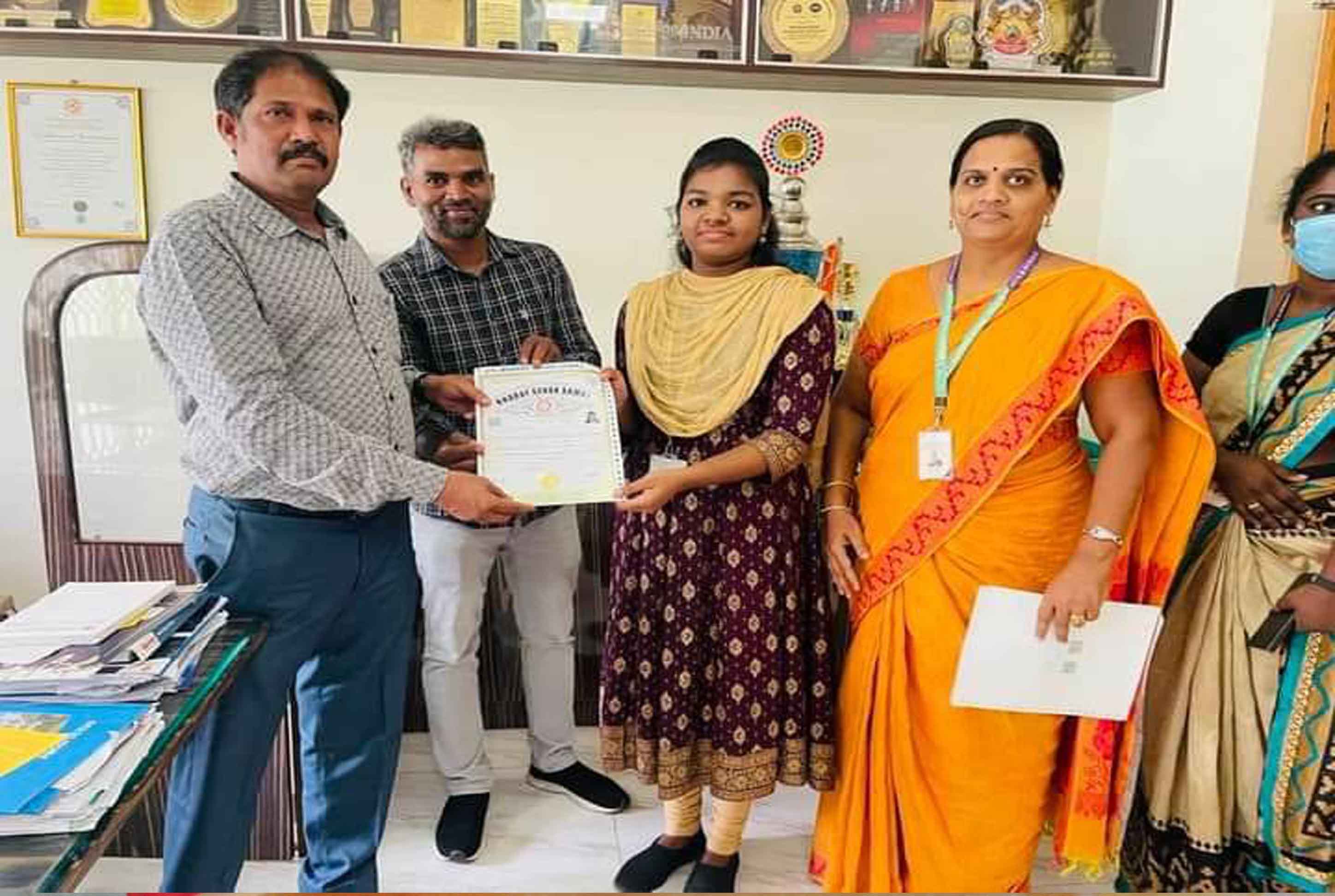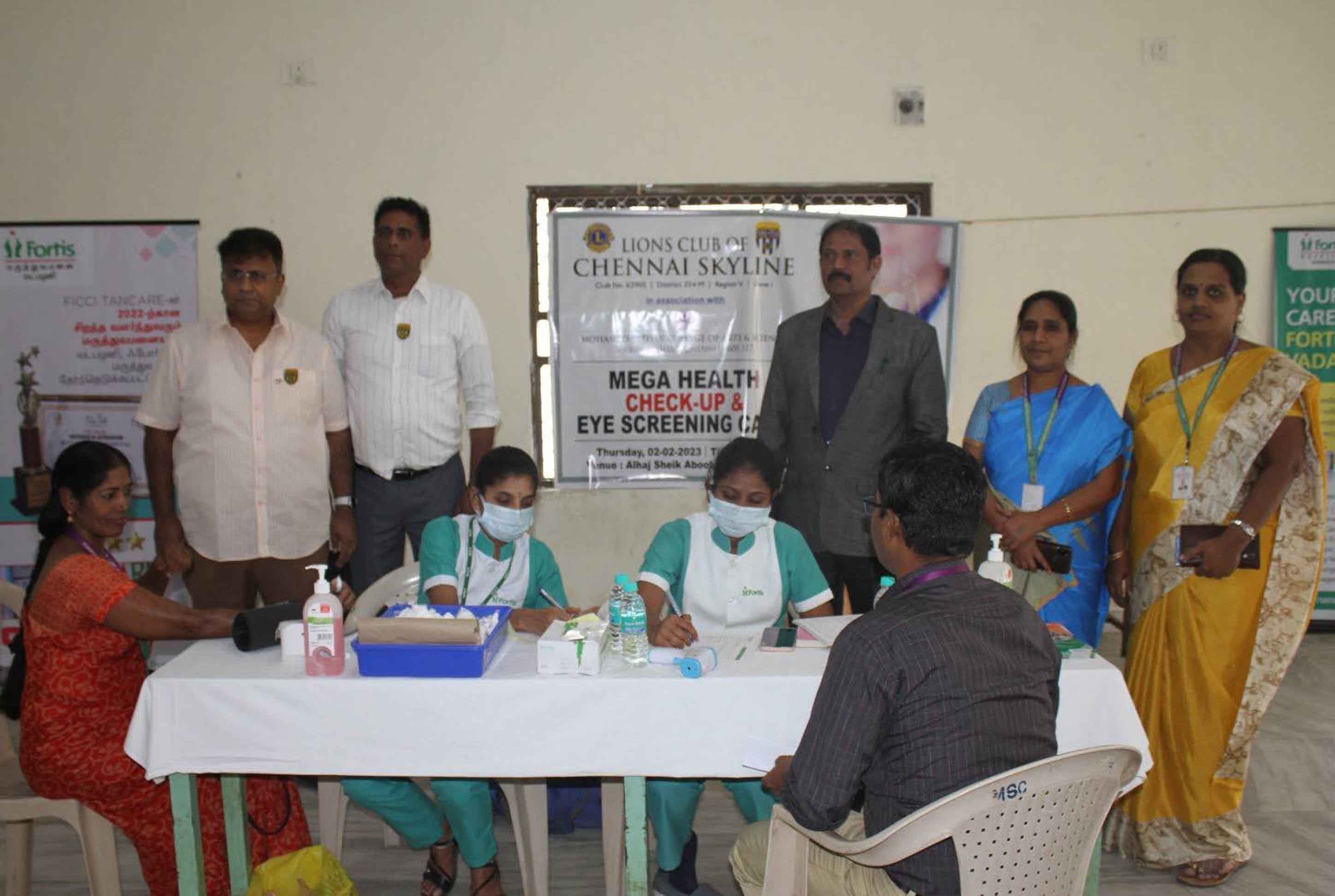PG and Research Department of Microbiology
Overview
The PG and research department of microbiology was inaugurated in 1994 with a primary focus on exploring the diverse roles of microbes in life. The department offers under-graduation and post-graduation courses in Microbiology. In 2010, the department introduced M.Phil Microbiology course to facilitate research scholars. In the academic year 2012, Ph.D. Microbiology course was also added to enhance research capabilities within the department.
The department’s primary objective is to provide knowledge in the field of Microbiology. This progression reflects a commitment to advancing microbiological understanding and fostering scholarly research. The course content is designed to cover all aspects of Microbiology and practical orientation for microbiological methods. The department has good facilities for teaching and research, including spacious furnished laboratory, theory and seminar hall with smart class. The faculty in our department is well-trained and excels in both Research and Teaching endeavors.
Vision
The Post Graduate and Research Department of Microbiology serves as a world class hub in advancing microbiological knowledge. Through interdisciplinary Education and Research initiatives, we focus on Microbial Pathogenesis, Infectious Diseases, Immunology, Industrial and Pharmaceutical Applications, Microbial Ecology, and Environmental Microbiology, contributing to the betterment of human health and the environment. Our Department of Microbiology envisions being a dynamic platform, producing Excellent Graduates, Postgraduates and distinguished Scientists who can contribute to various branches of life sciences.
Mission
The mission is to provide the students with the best quality education and well-developed skill sets in the field of Microbiology. We strive to empower students to excel in their respective fields, providing holistic theoretical and practical training in various domains such as dairy, pharmaceutical, medical, agricultural institutes and industries. We encourage students to pursue higher education, competitive exams, and industry careers with requisite training, universities and colleges around the world, and career level skills training in their degree programs to improve student recruitment and graduate employability. We also foster self-confidence and self-reliance in students to cultivate leadership skills and teamwork to prevent the outbreaks of emerging diseases in society.
Course Scope and Objectives
| CSO | The department prioritizes instilling values, ethics, social responsibility and a passion for science and research among students. This is achieved through guest lectures, workshops, hands-on-training programs, and programs addressing environmental issues. National and international conferences featuring eminent scientists are regularly organized. Notably, our students have been consistently securing university ranks every year, and our final year students (both UG & PG) are being placed in well reputed Institutions, Hospitals, Diagnostic Laboratories, Universities and Food and Pharma Industries. |
Roles of a Microbiologist
| ROM1. | Laboratory Work |
| ROM2. | Industry Engagement |
| ROM3. | Research and Academia |
| ROM4. | Agricultural Specialist - study the role of microbes in plant disease, pest control, nutrition and soil fertility |
| ROM5. | Healthcare |
| ROM6. | Innovation |
| ROM7. | Bio discovery - Unearthing unique species from extremophilic environments |
| ROM8. | Entrepreneurship |
| ROM9. | Space Exploration |
Career Opportunities (CO)
| CO1. | In the area of food, pharmacy, agro-chemistry biotechnology, bio-refinery, environment, pollution control and bioremediation. |
| CO2. | In the field of agriculture, microbiologists act as environmental and health specialists to study the role of microbes in plant disease, pest control, nutrition and soil fertility. |
| CO3. | In the field of medicine and health care, the work is usually associated with diagnosis, prevention and treatment of illnesses associated with microbes. |
| CO4. | Universities and Colleges employ microbiologists as Researchers and Faculty. |
| CO5. | Invention of innovative new diagnostic kits (e.g. pathogen detecting, antigen detecting, receptor detecting etc.). |
| CO6. | New Drug discovery. | CO7. | Unearthing unique species from extremophilic environments. | CO8. | Owning Patent for small to big innovations. | CO9. | Part of various missions including the recent Mars Curiosity Mission in organizations like NASA. |
Programme
Major Recruiters












